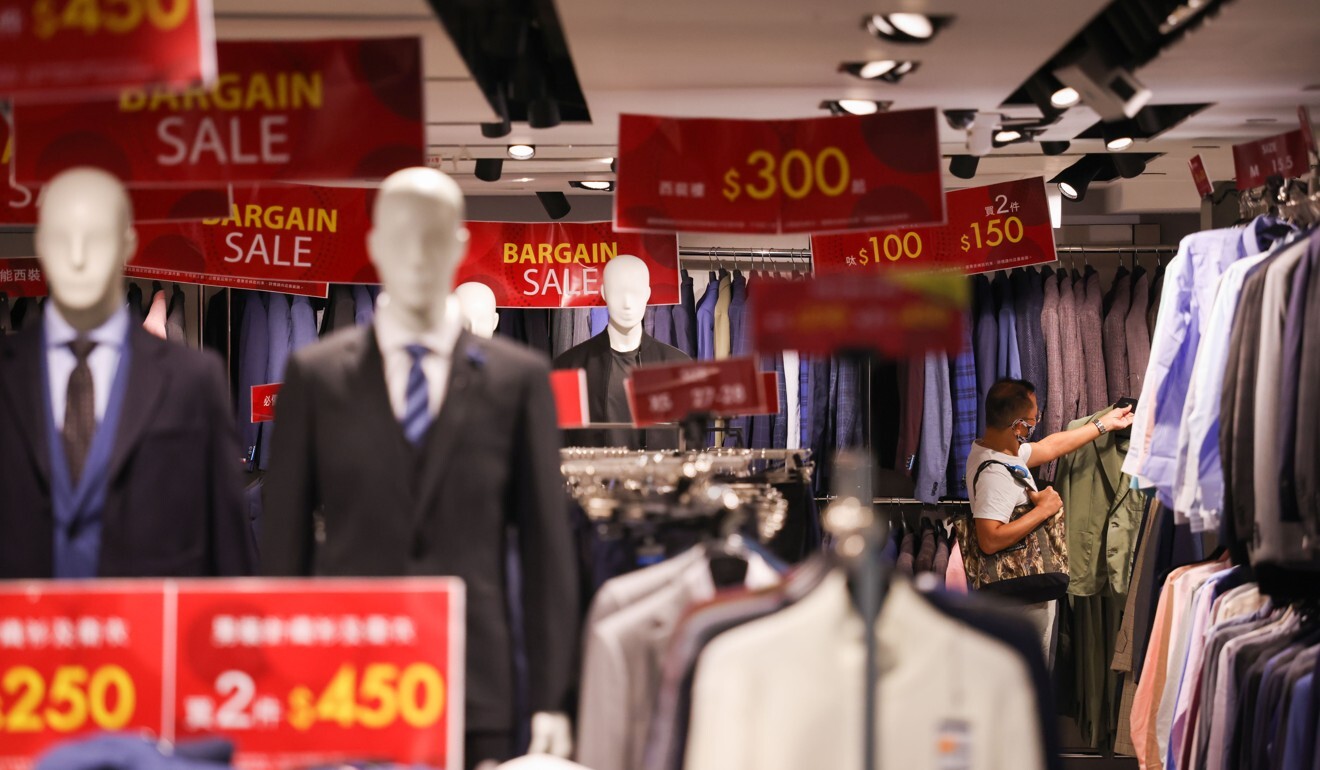
Hong Kong retail sales rise 7.3 per cent in September as e-voucher scheme boosts consumer confidence
- September sales jump to HK$28 billion, boosted by rising consumer confidence from digital voucher scheme
- In first nine months of year, online transactions leapt 8 per cent from same period in 2020
Provisional figures released by the Census and Statistics Department on Tuesday showed sales for the month jumped to HK$28 billion.
A government spokesman said consumer confidence had been boosted by the scheme, which has granted each eligible Hong Kong resident HK$5,000 worth of e-vouchers in stages since August.

“The stable local epidemic and improving employment and income conditions, together with the consumption voucher scheme, should remain supportive to the retail sector in the near term,” he said. “However, the virtually frozen inbound tourism will continue to constrain the extent of revival.”
The government also revised the estimate for August retail sales to an 11.9 per cent increase from a year earlier. In the first nine months of 2021, retail sales soared 8 per cent from the corresponding period last year.
Online sales were robust, soaring 30.5 per cent year on year to HK$2.3 billion in September and accounting for 8 per cent of the total retail revenue.
In the first nine months of this year, online transactions leapt 43.5 per cent from the corresponding period in 2020.
The voucher scheme was designed to boost the sagging economy hurt by the Covid-19 pandemic.

Some analysts credited the e-vouchers with a surge in sales of big-ticket items such as electrical and consumer durable goods, which rose 48.3 per cent in September, as well as jewellery, watches and clocks, up 16.2 per cent. Sales at optical shops were also 17.3 per cent higher than a year ago.
Ryan Lam, head of research with Shanghai Commercial Bank, said consumer spending would not see a full recovery until tourists returned to the city and the border was reopened.
“After the consumption vouchers, there is a question mark on the sustainability of the recent recovery in retail sales,” he said. “The wealth effect, or Hongkongers’ feel-good factor towards spending, has been negative since August, when the stock market started to decline.”
He added: “We need the border to be reopened soon.”
Deliveroo, NFT vendor among new renters of prime Hong Kong retail space
Lam said that growing inflation was also having a negative impact on the retail recovery.
“Hong Kong commodity and energy prices are rising so fast that they exceed the wage increases,” he said.
Financial Secretary Paul Chan Mo-po previously estimated the voucher initiative would contribute at least 0.7 per cent growth to gross domestic product (GDP) this year because the scheme prompted retailers, shopping centres and payment service providers to offer discounts and perks for customers.
GDP grew 5.4 per cent in the third quarter this year from the same period in 2020, according to an advance estimate on Monday.
Chan on Sunday said full-year GDP growth was on track to meet the upper end of the government’s forecast ranging between 5.5 and 6.5 per cent.
A spokeswoman for the Hong Kong Retail Management Association said the second round of consumption vouchers gave retail sales a short-lived shot in the arm.
But, she added: “The retail environment remains tough, and retailers fear spending sentiment will sink again after the scheme ended.”
The association’s members also called for reopening the border, she added.

